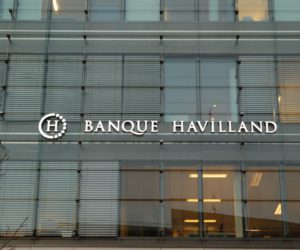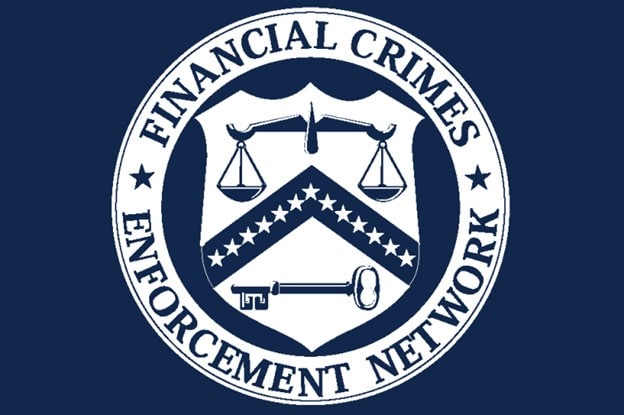From their agility to their destructive nature, specific characteristics of criminal networks are essential for their functioning and serve as pointers to better understand the threats these criminal networks pose.
In a report today Europol considers the relevance of such threat indicators and
explains why these make some networks more threatening than others.
“Once we understand what determines the threat of criminal networks, we are better equipped to design measures to counter them,” the report, titled “Decoding the EU-s most threatening criminal networks” says.
A critical characteristic of the most threatening criminal networks is
their capability to misuse the infrastructure available through businesses
and companies to facilitate their criminal objectives, it reveals.
There is almost no actor in the serious and organised crime landscape who is not linked, in one way or another, to a sector of the legal economy, whether to
commit the criminal activity, to disguise the criminal activity, or to launder
their criminal profits. This is what makes the most threatening criminal
networks agile.
Criminally owned or infiltrated LBS
Some 86 % of the most threatening criminal networks make use of Legal Business Structures (LBS). A large part does this in a way that represents the highest threat level: setting up its own LBS, infiltrating existing LBS at a high level or colluding with
or coercing key high-level individuals within a LBS to gain access to or
control over the LBS.
The misuse of LBS can be an inherent part of the crime area in which
criminal networks are active. For instance, in the case of frauds against
the national financial interest of EU Member States, such as the misuse
of public funding, VAT fraud and Missing Trader Intra Community (MTIC)
fraud.
For other crime areas, even though LBS are not an intrinsic part
of the modus operandi, they may be important facilitators of criminal
activities. For example, front or shell companies may be used to facilitate
the movement of illicit or stolen goods or to enable money laundering
activities. Companies are set up to provide official work for members of
the criminal networks. Shell companies are set up to conceal and facilitate
a wide range of criminal activities, from investment fraud and match-
fixing to recruitment of victims for THB, and beyond.
Infiltration and misuse of LBS can be systematic and long-term, or
temporary.
Criminal networks set up new companies or infiltrate existing
business structures to take advantage of the façade of legitimacy,
as existing companies with an established and healthy financial and
tax record often attract less attention from tax authorities and law
enforcement. Criminal networks abuse the names of bona fide existing
companies to facilitate their criminal activities while those abused are
unaware of it. They sometimes also set up companies with similar names
to existing companies.
LBS are registered in the name of the leaders, core members or
low-ranking members of criminal networks. Strawmen without
criminal records, often relatives or friends of network members, are
also used to register the LBS or the accounts linked to the real or bogus
legal business entity.
LBS used or abused by criminal networks for their criminal enterprise
are situated in almost 80 countries across different continents.

Sectors at risk
The data show clearly that LBS are infiltrated or misused by criminal
networks across almost all sectors, including tourism, recycling, wellness
and sports, retail and cultural associations.
Three sectors are particularly affected by criminal infiltration or abuse:
construction, hospitality and logistics (i.e. transport and import/export
companies). The companies are used in all crime areas with the exception
of cyber-attacks.
In the construction sector, LBS are used to facilitate criminal activities
and money laundering in almost all crime areas: drug trafficking, extortion
and racketeering, frauds against the public interest of the EU or Member
States and online fraud, migrant smuggling, organised property crime,
waste trafficking and weapons trafficking. Construction companies can
be used to invest laundered criminal proceeds or can be set up as a cover
for renting warehouses to conduct illicit activities.
LBS in the hospitality sector, including nightclubs, are often exploited
for the purposes of drug trafficking, extortion and racketeering, frauds
against the public interest (including VAT, MTIC and excise fraud), migrant
smuggling, organised property crime and weapons trafficking. However,
the sector is not reported in connection with criminal networks active in
commodity counterfeiting goods, cyber-attacks, environmental crime and
online frauds.
Establishments operated by this sector are convenient as
meeting places for criminal partners, as selling points for drugs or as a
front for money laundering schemes.
LBS in the logistics sector (transport and import/export) are mainly
used in drug and waste trafficking, but also in almost all other crime areas
– counterfeiting of goods, extortion and racketeering, frauds against
the public interest of the EU or Member States (including VAT, MTIC
and excise fraud) and online frauds, migrant smuggling, organised
property crime (for example, stolen vehicles), waste and wildlife
trafficking, and weapons trafficking.
Besides the common facilitation of illicit goods overseas and the transport throughout the EU by haulage companies, this can also include the abuse of taxi companies to move money, for example.
The sectors and types of LBS that a criminal network may infiltrate, and
the motivations behind these choices, can vary considerably. Examples
include infiltration of the construction, catering and real estate sector for
money laundering, the retail sector for VAT fraud, and the car industry
for vehicle trafficking. To support the criminal activity while increasing
resilience against law enforcement intervention, the LBS can be spread
over a number of countries.
Money laundering capabilities
Money laundering, criminal finances and corruption are as pervasive
and disruptive for society as they are indispensable for criminal actors.
Almost all of the most threatening criminal networks make use of at
least basic money laundering techniques.
Their far-reaching tentacles corrode the rule of law, grind down people’s trust in the justice system and its institutions, and weaken societal and economic growth. The lines between the illegal and legal worlds become increasingly blurred; criminal
finances and investments are tangled with legal ones.
The most threatening criminal networks in the EU use real estate as one
of the main industries to launder their illicit profits (41 %). When laundering
through investments in real estate, some criminal networks launder their
profits through the purchase of physical and financial assets often linked
to private companies, or by financial and legal experts (i.e. lawyers and
accountants) who are sometimes unaware of the criminal origin of the
assets. Ownership of these assets is exchanged between companies
when necessary, either as a means of payment for other criminal
activities and/or as an investment. This blending of illicit profits with legal
assets and the fact that there are no financial transactions involved during
the transferral of assets makes it challenging for investigators to link the
movement of assets to a criminal venture.
Other common money laundering techniques include investments in
high-value goods such as gold and luxury items (27 %), the use of cash-
intensive businesses, for example in the hospitality sector (20 %), and the
use of cryptocurrencies (10 %). Creating a complex web of companies,
often without real activity, with strawmen as administrators and located
in various countries, is another technique used for money laundering
purposes. False contracts and invoices make it possible to transfer large
amounts of money via the bank accounts of these companies.
Other techniques include identifying companies on the brink of bankruptcy
(which are then bought out), placing money in offshore companies and
bank accounts of third parties, fraudulent bookkeeping, and the issue and
use of invoices for non-existent business activities.
Dedicated expertise is indispensable when it comes to money laundering,
and experts are often considered critical and irreplaceable in the criminal
process. The availability of such expertise for criminal networks is linked
to a higher threat, as it allows them to bring criminal money into the legal
economy and gain more power in society.
The experts needed for money laundering range from professionals with
deep technical expertise to those skilled in more executive tasks. More
technical profiles include financial experts, legal experts and real estate
experts. Profiles relevant for executive tasks in money laundering include
cash collectors, money couriers and money mules. Experts are generally
located in the reporting country.
The importance of money laundering as part of the crime infrastructure,
coupled with the profit-oriented nature of serious and organised crime,
means that it is often regarded as the main activity of criminal networks,
even if it supports their actual core business, and these expert roles are
actually embedded in the criminal network. In exceptional cases, expertise
is available outside of the network under the ‘crime-as-a-service’ concept.
The most threatening criminal networks include (a small number of)
specialised criminal service-providers, which are only involved in the
provision of money laundering services to other criminal networks,
without being active in other crime areas.
Money laundering techniques used by these networks vary, including trade-based money laundering through legal business structures, investment in real estate and
cash-based money laundering techniques. In these networks, in addition
to the role of the money launderer on which the activities of the criminal
networks rest, financial and legal advisors, document forgers and brokers
also play an important role. Frequently, some of the money laundering
activities take place in the country where the launderer is based.
However, these activities are not exclusively limited to the country of
location of the launderer
MONEY LAUNDERING NETWORK OFFERING TRADE-BASED MONEY LAUNDERING SERVICES
A specialised criminal service provider network, composed of Italian, Albanian, Colombian, Moroccan, and Syrian nationals, has built up an international network of companies to launder illicit proceeds. The criminal network offers
professional services to hide the origin of proceeds generated from illegal drug trafficking in South America.
In order to launder drug profits, the network offers a service of trade-based money laundering. The drug producers would provide drugs to Italian buyers as a form of credit. The profits generated from the sale of the drugs in Europe are then
picked up by brokers, introduced into companies, and used for ordering goods such as mobile phones from China.
These goods are then shipped to the United States and further transported to Colombia, where they are offered on the market. Upon being sold, the cartels receive the cash and thus their veiled payment for the drugs provided to
European sellers.








